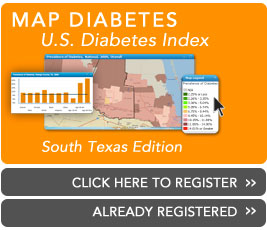Posted by Staff
Clinical Trials
Thursday, May 30th, 2013
Diabetes Care: December 28, 2012
OBJECTIVE To assess the clinical efficacy of nutritional amounts of grape polyphenols (PPs) in counteracting the metabolic alterations of high-fructose diet, including oxidative stress and insulin resistance (IR), in healthy volunteers with high metabolic risk.
RESEARCH DESIGN AND METHODS Thirty-eight healthy overweight/obese first-degree relatives of type 2 diabetic patients (18 men and 20 women) were randomized in a double-blind controlled trial between a grape PP (2 g/day) and a placebo (PCB) group. Subjects were investigated at baseline and after 8 and 9 weeks of supplementation, the last 6 days of which they all received 3 g/kg fat-free mass/day of fructose. The primary end point was the protective effect of grape PPs on fructose-induced IR. Read more
Posted by Staff
News
Wednesday, May 22nd, 2013
Am J Clinical Nutrition: May 15, 2013
Background: The associations of egg consumption with cardiovascular disease (CVD) and diabetes are still unclear.
Objective: We aimed to quantitatively summarize the literature on egg consumption and risk of CVD, cardiac mortality, and type 2 diabetes by conducting a meta-analysis of prospective cohort studies. Read more
Posted by Staff
News
Wednesday, May 22nd, 2013
EHP: May 14, 2013
Background: In animal studies, 2,3,7,8-tetrachlorodibenzo-p-dioxin (TCDD) alters glucose transport and increases lipids and blood pressure. Epidemiologic evidence suggests an association between TCDD and metabolic disease.
Objectives: On July 10, 1976, a chemical explosion in Seveso, Italy, resulted in the highest known residential exposure to TCDD. Using data from the Seveso Women’s Health Study (SWHS), a cohort study of the health of the women, we examined the relation of serum TCDD to diabetes, metabolic syndrome, and obesity over 30 years later. Read more
Posted by Staff
News
Wednesday, May 22nd, 2013
J Am Coll Cardiology: May 1, 2013
Objective This study evaluated the relationship between glycemic control and cardiovascular disease (CVD) hospitalizations and all-cause mortality among type 2 diabetes patients in a real-world setting.
Background Clinical trials have not established that tight glycemic control reduces CVD events and may be associated with increased mortality. Observational studies of specific cohorts have reported increased risk of those outcomes at both high and low glycated hemoglobin (A1C) levels. Read more
Posted by Staff
News
Wednesday, May 22nd, 2013
Diabetes Educator: April 22, 2013
Purpose The purpose of this study was to determine the feasibility of an Internet-based intervention, targeting very low-income minority patients with a high risk for not engaging in diabetes self-management, to increase diabetes self-management and improve diabetes outcomes.
Methods Patients with diabetes followed in a community clinic were enrolled in the 13-month trial. Participants were requested to test blood sugar and upload glucometer data every day and login to the program at least once every second day. Read more
Posted by Staff
Clinical Trials
Wednesday, May 22nd, 2013
Market Watch: May 20, 2013
NEW ORLEANS, May 20, May 20, 2013 (GLOBE NEWSWIRE via COMTEX) — Despite rising interest in real world outcomes, a recent study performed by Context Matters and Pfizer demonstrates that less than ten percent of diabetes clinical trials conducted in the past decade included patient-reported outcomes (PROs) as part of their protocols.
Presented today at the 18 Annual International Society for Pharmacoeconomics and Outcomes Research (ISPOR) conference in New Orleans, the study analyzed nearly 650 Phase 3 and Phase 2/3 diabetes clinical trials from the clinicaltrials.gov database. Read more



























